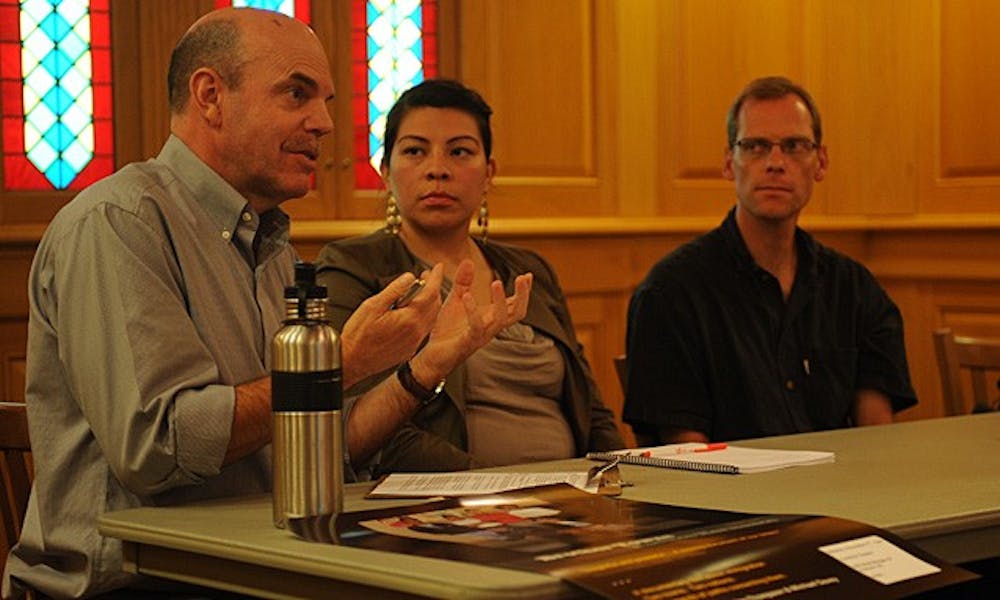Four panelists met Tuesday night to discuss illegal immigrants and potential reform as part of Duke Political Union’s “Super Tuesday” series.
Irene Godinez, member of the Latin American Coalition and field director for the North Carolina Equals Project, Gunther Peck, professor of history and public policy, Noah Pickus, Nannerl O. Keohane director for the Kenan Institute for Ethics, and Charles Thompson, director of undergraduate studies at the Center for Documentary Studies participated in the panel.
The discussions strive to introduce interesting topics to the student body in hopes of cultivating a broader political culture on campus and strengthening smaller political groups, said DPU co-President Ben Bergmann, a senior.
“Students... need to be informed,” Peck said. “If they don’t speak for themselves, others will speak for them.”
The panelists discussed problems with the current approach to dealing with undocumented immigrants. Godinez noted an increase in racial profiling by local law enforcement and the growth of hate crimes against the Latino community since 2006.
Thompson, who also serves as the leader of the Tucson, Ariz. DukeEngage program, said even as an American citizen, he has had to constantly present his passport when working near the militarized border.
“I felt my rights and personhood were violated a number of times,” he said. “I can only imagine what it must be like to be a person of brown skin [living] so close to the border.”
Peck, who categorized the history of immigration reform legislation as “the most spectacular series” of failures, said that if the purpose of immigration policy is to create a path toward citizenship, the current legislation is failing.
To pass legislation, Peck said, U.S. citizens must generate a sense of solidarity.
“It’s going to take conversation and getting out of our comfort zones,” he said.
Thompson said immigration policy is a worthwhile start to address issues of societal inequality, but citizens must also examine the root economic causes of immigration—not just militarize the border.
“If we emphasize enforcement, it pushes everyone to the shadows,” he said. “There are so many living in the shadows who would much prefer to live in the light if we could just provide them the opportunity to do so.”
Sophomore Neha Sabharwal said the forum forced her to reconsider her views on immigration reform.
“It pushed me to look at [the issue] more because of how narrow my understanding is,” she said.
Get The Chronicle straight to your inbox
Signup for our weekly newsletter. Cancel at any time.

